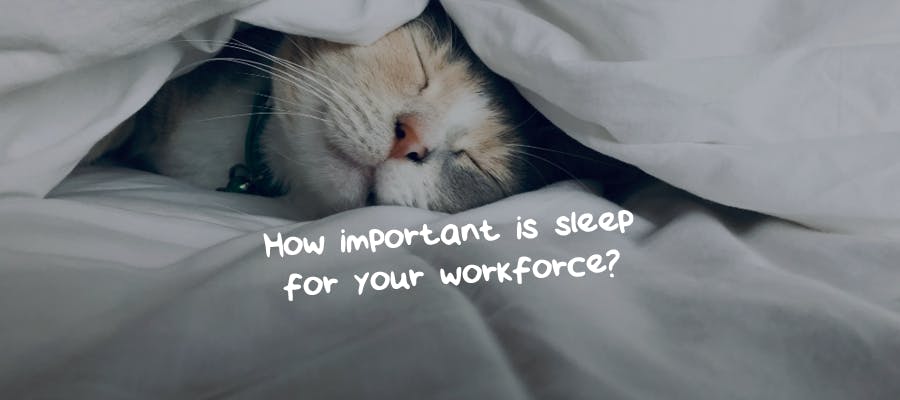First published on Thursday, August 13, 2020
Last updated on Friday, March 15, 2019
It’s easy to spot an employee that’s had a night of broken sleep.
They struggle to keep their eyes open and knock back espresso shots all day. And the only time they look awake is when it’s time to go home.
You usually put this down as a one-off. But should you be more concerned?
We explain the effects of staff tiredness on your business and how you can encourage your people to get more shut-eye.
The numbers that’ll keep you up at night
Research from the World Sleep Society shows that a cycle of bad sleep affects more than your staff’s coffee intake.
46% of employees with frequent sleep disturbances report making errors at work, or even missing work or workplace events. And if they do turn up, they’ll probably be late.
According to our BrightHR data, 11% of staff who were late to work in 2018 used the excuse of oversleeping, and the majority of late staff only showed up after 36 minutes.
That might not seem like a lot of wasted time. But even a few minutes of lateness can hurt your pocket.
Research shows that the UK economy loses a whopping £40bn annually (and over 200,000 working days) due to employees not getting enough sleep. So, what can you do about it?
Encourage your staff to get some shut-eye
You need to tell sleepy staff to get more rest during the week, and not just wait for the weekends to recharge.
Data shows that 35% of people in Britain get less than seven hours sleep every night, with those at the bottom end of the scale likely to suffer the most.
And although it might seem like telling your staff to get more sleep isn’t a job for a manager, it could just be the key to improving productivity.
A recent survey revealed that 42% of UK workers regularly lose sleep because of work-related stress. And with errors in the workplace a result of sleep deprivation, it’s easy to see a destructive cycle begin.
But there are ways for you to reduce your staff’s workplace stress and get their sleep pattern back on track. Discover how to support your stressed-out staff.
And if your employees need additional support from a trained counsellor, it might be worth investing in an employee assistance programme like Bright Wellbeing & Counselling.






